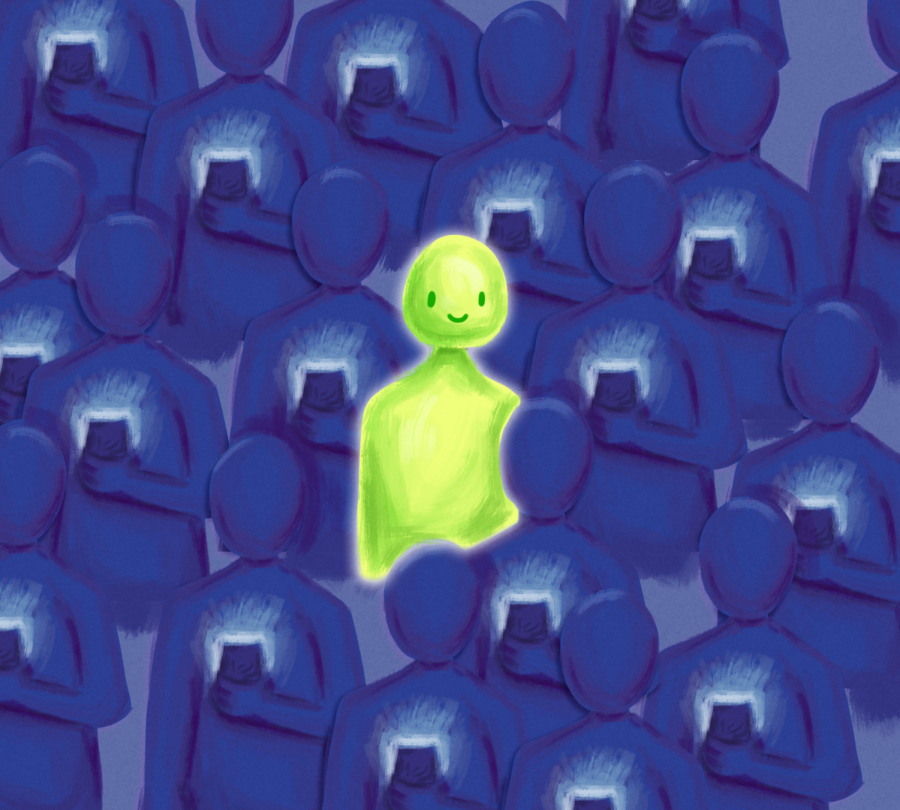UT-Austin students avoid social media, experience college life from atypical lense
April 7, 2021
When Alyssa Zhang downloaded Instagram during her junior year of high school, she said she woke up every morning self-critical and unhappy. The more time she spent scrolling through pictures, the more negative her view of herself became.
“It just made me feel terrible about my body,” neuroscience freshman Zhang said. “I quickly deleted it because I realized after three weeks, I started hating myself.”
Faced with endless photos of models and influencers, Zhang said she decided social media wasn’t something she wanted to participate in.
“I have a healthier idea of myself because I don’t scroll through images of perfectly photoshopped people every day,” Zhang said.
Because of the absence of social media in her life, Zhang said making friends during a pandemic has been hard. According to a study from the State University of New York, Zhang and other students are part of the 2% of college students who choose to stay off social media, resulting in a different experience in making friends, getting information and developing personal opinions.
“I was okay at the beginning of the pandemic because I normally don’t meet that many new people, but later on, I was like, ‘Well, this isn’t normal. I haven’t met anyone,’” Zhang said.
Despite the barriers in friend making, Zhang said she ultimately won’t use platforms that harm her mental health but recently redownloaded Snapchat to communicate with old friends in hopes to reconnect.
Physics freshman Eden Chen said he chooses not to participate in social media to avoid being swayed by misinformation or internet trends.
“I don’t get swayed by information on the internet, and I get to form my own ideas,” Chen said. “I also get to develop them more because I don’t have this phone that sends me notifications every second and distracts me from my own thoughts.”
While social media can be a helpful tool for connecting with others, he said it’s not something he benefits from.
“Most young people can’t decipher between the right information or wrong information and also, some of the information can be quite dangerous,” Chen said. “(Social media) kind of has this prejudice that kind of incites … mob mentality and (can) cause people to not think based on facts.”
Mia Weissbluth, Middle Eastern studies freshman, said not being on social media has made it hard to find out about campus events. She said she mostly relies on friends to inform her about event details.
Weissbluth said she gave up most social media during her junior year of high school and isn’t interested in being active again anytime soon.
“In our generation, it’s kind of weird to exchange phone numbers with people when you first meet them,” Weissbluth said. “But I was able to make friends … Overall, it hasn’t been super detrimental.”
While most friends support her decision, she said her anti-social media stance often causes conflict and bitterness from others.
“I sometimes worry that I give off the impression that because I don’t have social media that I’m better than other people,” Weissbluth said. “This decision is what makes me feel better about myself.”











